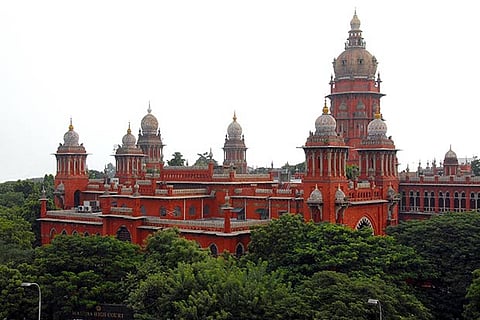Ban on registration of unapproved layouts returns
Chennai
The first bench comprising Chief Justice Indira Banerjee and Justice M Sundar restrained authorities from registering and re-registering any plot that is part of unapproved layout for the next three weeks or until further orders. Along with this, the bench also called for details of registration of unapproved plots in violation of the court’s September 9, 2016, ban order.
It was on September 9, 2016 that the first bench headed by the then Chief Justice Sanjay Kishan Kaul imposed a blanket ban on registering unapproved plots or converting farm lands into housing plots without following norms.
However, on March 28, 2017, the then first bench headed by acting chief justice Huluvadi G Ramesh citing section 22-A of Tamil Nadu Registration Act, modified the ban and allowed resale and registration of unapproved plots that had already been sold and registered. On Friday, a total of 12 PILs were brought before the bench, which said there should not be any registration or re-registration till the matter is decided.
During arguments, the bench also observed that by allowing resale of unapproved properties, the court would be putting a premium on violations. “It is absolute deterrence to those who are highly compliant with law,” it said. Most of those who purchased unapproved plots were investors, the bench said, adding that a person would not sell his dwelling house unless there were extreme financial exigencies.
When Elephant G Rajendran, whose PIL led to the blanket ban on unapproved layouts and conversion of farm lands into housing plots, said at least 4 lakh unapproved plots were sold illegally even after the September 9 ban order, the bench said such registrations would be ‘undoubtedly a nullity.’ Even registration and resale of properties following the March 28 modified order are subject to the outcome of the writ petitions, the bench added.
Earlier, senior advocate Nalini Chidambaram said that modifying the March 28 order would send a confusing message to the public. Advocate VBR Menon said the September 9, 2016, order of blanket ban on registration of unapproved layouts had instilled a fear of law on violators. But the last order on March 28, which permitted resale due to amendments brought in by the government in Section 22A of Registration Act, has resulted in creating two classes of land owners. He submitted that the notification allowing resale of registered unapproved plots was an act which failed to have any link between the law and object that is sought to be achieved.
Senior counsel Ramakrishnan, representing interveners, sought the court to continue with the last order until the bigger issue concerning unapproved layouts is decided. He said the last court order exempting resale of already registered unapproved plots gave a very small window to farmers and individual landowners, who want to sell their properties for family emergencies like wedding, education and medical treatment.
Expert opinion sought to make courts in state differently abled friendly
The Madras High Court has directed the authorities, including the Registrar General of Madras High Court, to take steps to obtain expert opinion to make the courts in the state more differently abled friendly and submit a report when the High Court reopens after the ensuing summer vacation.
The first bench comprising Chief Justice Indira Banerjee and Justice M Sundar said, “Counsels appearing on behalf of respective respondents are requested to take steps to obtain expert opinion to make the courts more differently abled friendly by providing for interpreters, who might be proficient in the use of sign language for hearing impaired, for conversion of documents in Braille for the visually impaired and other measures apart from providing ramps and other facilities for the orthopedically challenged.”
Advocate L Muruganantham with a 70 per cent disability submitted in his PIL that the even court staffs and judges with disabilities face severe difficulties as most of the courts and its various buildings within the state are not accessible to differently abled people. The petitioner said it will lead to severe violations of their fundamental Rights. He further said that it is more painful that most of the courts in the state are not accessible to differently abled persons and even elderly people find it difficult owing to the barriers in physical environment due to the manner of construction where even ramps have not been provided.
Plea on bribing of voters at RK Nagar segment put off
The plea in the Madras High Court to act against the Election Commission (EC) for dereliction of duty, also demanded the court to direct the EC to book 10,000 voters for taking bribe.
The plea was submitted by Nalini Chidambaram, to whom the bench sought to know as to what prevented her from approaching the police with a complaint. Election Commission’s counsel Niranjan Rajagopal contended that with the EC mandated to hold the elections, the focus largely revolved around the conduct of the contestants. Also, while conceding to the aspect that EC could have attended to the collusion of voters in bribery, he said there were practical difficulties in either identifying or booking two lakh voters. He also wondered whether voters would come forward to vote if such action was taken. However, Nalini Chidambaram said such a move would have sent a strong message to errant voters who were under the impression that taking money to cast votes was not an offence at all. She insisted that the EC missed a golden opportunity in sending a strong message to voters owing to its ignorance of law and hence is guilty of dereliction of duty. The bench on issuing notice to the EC posted the case to July 11, for further hearing.
Visit news.dtnext.in to explore our interactive epaper!
Download the DT Next app for more exciting features!
Click here for iOS
Click here for Android

